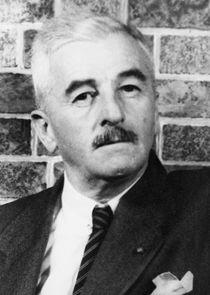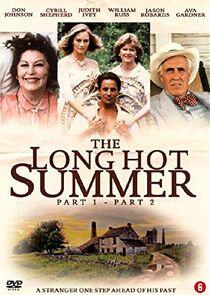
William Faulkner
Faulkner was born in New Albany, Mississippi, and raised in Oxford, Mississippi. During World War I, he joined the Royal Canadian Air Force, but did not serve in combat. Returning to Oxford, he attended the University of Mississippi for three semesters before dropping out. He moved to New Orleans, where he wrote his first novel Soldiers' Pay (1925). He went back to Oxford and wrote Sartoris (1927), his first work set in Yoknapatawpha County. In 1929, he published The Sound and the Fury. The following year, he wrote As I Lay Dying. Later that decade, he wrote Light in August; Absalom, Absalom!; and The Wild Palms. He also worked as a screenwriter, contributing to Howard Hawks's To Have and Have Not and The Big Sleep, adapted from Raymond Chandler's novel. The former film, adapted from Ernest Hemingway's novel, is the only film with contributions by two Nobel laureates.
Faulkner's reputation grew following publication of Malcolm Cowley's The Portable Faulkner, and he was awarded the 1949 Nobel Prize in Literature for "his powerful and unique contribution to the modern American novel." He is the only Mississippi-born Nobel laureate. Two of his works, A Fable (1954) and The Reivers (1962), won the Pulitzer Prize for Fiction. Faulkner died from a heart attack on July 6, 1962, following a fall from his horse the month before. Ralph Ellison called him "the greatest artist the South has produced".
Biography from the Wikipedia article William Faulkner. Licensed under CC-BY-SA. Full list of contributors on Wikipedia.
Part of Crew
Recently Updated Shows

The Studio
As movies struggle to stay alive and relevant, Matt and his core team of infighting executives battle their own insecurities as they wrangle narcissistic artists and craven corporate overlords in the ever-elusive pursuit of making great films. With their power suits masking their never-ending sense of panic, every party, set visit, casting decision, marketing meeting, and award show presents them with an opportunity for glittering success or career-ending catastrophe. As someone who eats, sleeps, and breathes movies, it's the job Matt's been pursuing his whole life, and it may very well destroy him.

MobLand
With the most powerful clients in Europe, MobLand will see family fortunes and reputations at risk, odd alliances unfold, and betrayal around every corner; and while the family might be London's most elite fixers today, the nature of their business means there is no guarantee what's in store tomorrow.
MobLand follows two generations of gangsters, the businesses they run, the complex relationships they weave and the man they call upon to fix their problem.

Daredevil: Born Again
Matt Murdock finds himself on a collision course with Wilson Fisk when their past identities begin to emerge.



